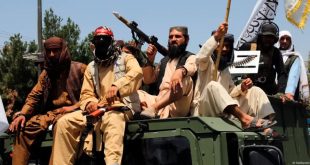By Hakim Ahmadzai-It is improbable that any nation could be entirely independent and self-sufficient. Afghanistan needs international assistance; however, it ought to decide its own fate. It is convincing to think that, life is an idea of loneliness; every being can be seemingly thought of as naturally alone, viewed introspectively. However, a closer examination of the idea reveals that, the system of the universe functions as a balanced whole; the extant of all beings is dependent on each other within the system, for whatever long it be. To illustrate the scope of our discussion, consider this example: in principle, a person’s life is alone, but in order for it to nurture, it needs assistance and resources from external natural, and artificial sources. The same applies to a community and a country. Hence, according to Fund for Peace (FFP), Afghanistan is still a failed state (number 8 after Yemen, in placed in highly-alert category), Fragile State Index 2015. The Afghan government can do more than what it is doing to build Afghan society; and it should do it for real.
There is no reason to deny that corruption and lack of security are the major obstacles to society building in the country; and the two are not mutually exclusive. While Afghans voted with the hope that their new representative democratic government would serve them well, if not better; yet they are cynical of the government’s ability to deliver, and they are angry about it. When you speak to people in offices and on streets in Kabul –let alone rural areas–you are more likely to receive critical and cynical reactions from the subjects towards the Afghan government. Of course, a scientific research would produce testable results to support the point; but, the general assessment of the current situation in the country is more likely such that people are concerned with the extant of corruption and lack of public security. It is uncommon to hear that, within the Afghan government – powerful persons, i.e., ministers, deputies, and their associates – seem discouraged by the current structure of the government; hence, the pursuit of national interests become illusionary. It is difficult to refuse that, acrimony and deep divisions exist among the government officials. Traditional power-politics still play structural and legitimate role in the Afghan government. However, the lay public is disaffected, tired, and frustrated with their government because people are excluded from social and economic benefits.
It is unlikely that Afghanistan would fall into extreme national crises such as state collapse, and civil war. But disadvantaged Afghans in Afghanistan continue to suffer from: bloodshed produced by the imposed armed conflict and terrorism; and the government’s failure to create strategies to counter the problem effectively. The government is poor; hence, unhealthy and weak. Policies are not autonomous. Interest groups are powerful because they complicate and shape policies. People who struggle badly, join armed and unarmed government opposition. Some leave the country; drain of energy and human capital. Truly, development takes time, but Afghanistan is faced with a different kind of problem: it is a psychological one because fear and uncertainty in the government are the manifestations, closely observed. So what can be done?
There are some developments that have taken place at the cost of blood and treasure; no one can ignore them. The Afghan parliament and ministries are engaged in dialogue and debates over questions concerning development and failures (if any). Ministers are busy attending national and international conferences in efforts to bring prosperity and security to the country. Though, more needs to be done: transparency, rule of law, and trust must be created to mollify public legitimate concerns: security and delivering quality services. Here is a start-up: no negotiations with terrorists of any kind; extract the minerals (worth trillions) of different kinds in Afghanistan and wisely turn them into money so the economy gets flourished; invest in education; support ally countries within the ambit of International Law, and in contexts; and punish those who deviate from the rule of Law within the legal jurisdiction of the Afghan state. Indeed, scholars and practitioners may have high cultured proposals for formulating policies, but my personal and academic experiences during years of living under the chaos of power-politics encourage me to explain and argue why Afghanistan still remains a place of fear and hope.
It is well understood that, unless people change their situation, God does not change it for them. Atheists could partly disagree; it is ok. Human knowledge evolves; consequently, social, economic and political relationships can be shaped, and transformed to produce the desired results – peace and prosperity, in this context. Afghanistan lacks a sustainable tradition of democracy, and society building takes time; yet the key to success is honest commitment, determination and sustainable collaboration and cooperation in a perplexing world of cultures and personalities. Capacity deficit needs work; hence, put educated youth in position that fit them appropriately. In general, Afghanistan can develop when the country is not divided against itself; hence, national unity – real not nominal – is essential. Human autonomy based debates are tools to the ends; however, civil society play critical role in spurring the culture. Investment in primary, and higher education is key to long term human development in Afghanistan; the government should invest in it.
Afghans want a more competent and more transparent representative democracy (they voted); they want their kids and children to become educated and benefit from the technological inventions introduced by advanced societies; they want to fight back and free themselves from those who want to entangle them in, and subject them to terrorism (of any kind); and Afghans want to have good relationships with their neighbors and other international countries. Afghans know their needs because they live in this country. But, the high hopes of the Afghan society building can be realized when the Afghan government does more: implement law, mitigate and systematically curtail – discredit – corruption. Afghanistan still does not have its own electricity; it buys it from Turkmenistan. A government is government; a business is business. The two may need each other, but the former should not become the latter.
 Afghanistan Times
Afghanistan Times




